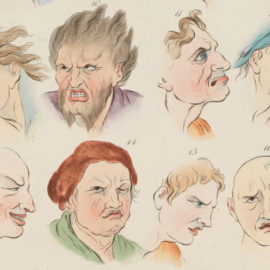

This article is an excerpt from the Shortform guide to "Huberman Lab". Shortform has the world's best summaries and analyses of books, podcasts, and more.
Like this article? Sign up for a free trial here.
What are common health problems in men? How can men perform self-exams at home like women do?
In a discussion about men’s health problems, Dr. Michael Eisenberg and Dr. Andrew Huberman addressed how men aren’t typically advised to do self-exams at home as women are. They also highlighted other treatments doctors may suggest.
Let’s take a look at the Huberman Lab’s advice for keeping men’s health in check with different treatments.
Testicular Health and Self-Exams
The podcast addressed the inconsistency in medical guidelines regarding self-exams. While women are commonly encouraged to perform regular breast self-exams, men are not typically urged to conduct similar testicular self-checks.
This approach stems from concerns about inducing unnecessary anxiety surrounding health problems in men. Despite prevailing guidelines against them, Dr. Eisenberg highlighted the importance of self-awareness in men regarding any changes in the size, shape, or consistency of their testicles.
Urinary Health and Prostate Precautions
Prostate health was discussed in the context of its function during reproductive years and the complications that arise as it enlarges with age, leading to various urinary symptoms.
A split urine stream, as explained by Dr. Eisenberg, may be indicative of an underlying condition affecting the urethra or prostate, and medical evaluation is advisable to address these concerns.
The contrast with hypospadias, a birth condition that is typically dealt with in infancy and not related to the previously mentioned symptoms, adds another layer to the understanding of urinary health issues.
Myth Busting: Testosterone Therapy and Prostate Cancer
The podcast addressed the use of low-dose Tadalafil (Cialis) not only for erectile dysfunction but also for urinary problems related to prostate health based on clinical evidence, clarifying it is not for preventative usage.
This overturns misconceptions and indicates that it’s essential to consider clinical evidence in the treatment and understanding of prostate health.
Context
Testicular self-examination (TSE) is a crucial practice for men to monitor their testicular health and detect potential issues early on. By examining their own testicles and scrotum for lumps or swelling, men can identify signs of testicular cancer, the most common cancer in men aged 15 to 40. TSEs are typically recommended monthly, starting at puberty, as they have been shown to lead to early detection and a high 5-year survival rate of 98% for testicular cancer. However, there is no general medical consensus on TSEs as a screening test due to concerns about unnecessary treatments and anxiety.
To understand the importance of TSEs, it is essential to have background knowledge about male sexual health and reproductive anatomy. The testicles play a vital role in producing sperm and testosterone, while the prostate gland produces fluid that nourishes sperm. Common issues like testicular cancer or an enlarged prostate can significantly impact male reproductive function. Historically, there has been less emphasis on TSEs compared to breast self-exams for women. Additionally, urinary symptoms associated with prostate health often manifest in older men.
Recent events include ongoing discussions within the medical community regarding guidelines for TSEs and the use of low-dose Tadalifil (Cialis) for urinary problems related to prostate health. It’s important to rely on clinical evidence when addressing misconceptions surrounding male sexual health treatment options.
Alternative Treatments and Preservation Methods
Dr. Eisenberg and Dr. Huberman explored treatments for Peyronie’s disease, which include FDA-approved medication to dissolve scar tissue, the use of stretching tools, and even surgery.
Discussing the accessibility of reproductive health services, they acknowledged that insurance coverage for hormone and sperm analysis has been improving. Dr. Eisenberg recommended men consult with primary care providers or urologists to explore their coverage options, underlining the importance of accessible and affordable healthcare for reproductive issues.
Dealing With Prolonged Ejaculation Times and Pelvic Floor Tensions
Lesser-known treatments for prolonged ejaculation times and the importance of pelvic floor health in men’s sexual well-being were discussed. Dr. Eisenberg emphasized the importance of pelvic floor health for men, which typically is more discussed about women’s health.
He noted that while pelvic floor exercises can be beneficial post-prostate surgery to aid recovery, caution is advised as these movements could be detrimental for those with an already tense pelvic floor. Pelvic floor muscles act as a supporting network beneath structures such as the penis, prostate, and bladder, with a crucial role in the ejaculatory function and potentially in the sensation of orgasm, indicating a deep-rooted involvement in male sexual functioning.
Awareness of Medication Side Effects on Sexuality
Potential sexual health side effects, particularly with testosterone medication, were highlighted. Dr. Andrew Huberman discusses the serious implications of using medications like finasteride and dutasteride, which inhibit DHT to treat hair loss and mentioned post-finasteride syndrome, a condition where sexual health problems persist for some individuals even after they have stopped taking the medication.
In his clinical experience, Dr. Michael Eisenberg has found that younger men often report sexual side effects from these medications. Recovery is typically expected in a few months, but there’s no guarantee, and some cases seem to result in permanent changes. Dr. Eisenberg points out the necessity for more detailed research into how these drugs affect sexual function.
Both doctors agree that the lasting effects of post-finasteride syndrome require more understanding, and MRI scans are being used to investigate further.
Context
Accessible and affordable healthcare for reproductive issues is of utmost importance, particularly when it comes to men’s sexual well-being. Understanding the background of reproductive health, including conditions like Peyronie’s disease and prolonged ejaculation times, as well as the significance of pelvic floor health, can provide valuable context. Additionally, being aware of medication side effects on sexuality, such as those associated with testosterone medication like finasteride and dutasteride, is crucial.
Reproductive health encompasses various aspects that impact men’s sexual well-being. Peyronie’s disease is a condition characterized by the development of fibrous scar tissue inside the penis, leading to painful erections and curvature. Prolonged ejaculation times can also affect sexual satisfaction. Pelvic floor health plays a vital role in supporting pelvic organs like the bladder, rectum, and prostate. It is essential to recognize that certain medications used for hair loss treatment inhibit the conversion of testosterone to dihydrotestosterone (DHT), which may have unintended consequences on sexual function.
The podcast highlights the need for accessible and affordable healthcare services addressing reproductive issues in men. It emphasizes the significance of pelvic floor health in maintaining optimal sexual functioning.

———End of Preview———
Like what you just read? Read the rest of the world's best guides to Huberman Lab" at Shortform.
Here's what you'll find in our full Huberman Lab episode summaries:
- How science can be applied to improve your daily life
- Information about key scientific tools and how they impact society
- How technology, biology, and health are connected






